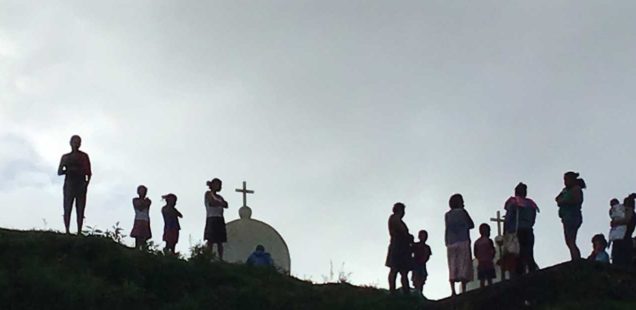
The struggle continues in the Caribbian Coast of Nicaragua
Among the bad news of this year, we have to lament a massacre that affected the indigenous Miskitu and Mayangna communities living in the Caribbean coast of Nicaragua in August 2021. At least 11 persons lost their lives there as part of an escalating pattern of violence and dispossession inflicted on the indigenous communities by settlers (‘colonos’) coming to illegally log, mine for gold, and raise cattle in the area. The Nicaraguan government has not only failed to enforce legal protections of Indigenous land, but actually plays an active role in colonization and exploitation. Since 2015, settlers have now killed more than 60 Indigenous people in Nicaragua, while many others have been displaced, according to the Center for Justice and Human Rights on the Atlantic Coast of Nicaragua (CEJUDHCAN).
“Despite the recognition of these lands as autonomous territories by the country’s legislation, the Ortega government has heavily promoted gold mining, commercial forestry, and cattle ranching since taking power in 2007 — both by its actions and omissions,” said Oakland Institute Executive Director Anuradha Mittal. “The result has been an influx of settlers [known locally as colonos] into these lands who continue to seize lands and kill Indigenous communities with impunity,” Mittal added.
International silence around the failure of the Nicaraguan government in enforcing national laws, its collusion with business interests, and its active role in the colonization of protected lands, was previously shattered by the Oakland Institute report, Nicaragua’s Failed Revolution. The report also brought forward first-hand testimony on the government’s failure to follow up on reports of violence and killings of the Indigenous Miskitu community members since 2015. The same cycle has continued with this latest massacre; neither the police nor the army had investigated the case in the days immediately following the killings, nor acknowledged that the incident has occurred.
“The settlers continue killing our people with total impunity,” said the Paul K. Feyerabend Laureate Lottie Cunningham, founder and director of the CEJUDHCAN. “The state has ignored our requests to investigate and prosecute past murders at the hands of settlers, and now the authorities are refusing to even acknowledge that this massacre took place. This impunity guarantees that more massacres like this will happen.”
International scrutiny on the Nicaraguan government’s disregard of Indigenous peoples’ wellbeing has increased over the past year. At the 46th session of the United Nations Human Rights Council, the UN High Commissioner for Human Rights has urged the Nicaraguan government, led by President Daniel Ortega to “take effective measures, in consultation with indigenous peoples, to prevent and address the increasing violence committed against them, including by conducting prompt and independent investigations into alleged killings and land seizures by armed groups.” This was followed by a public hearing held by the Inter-American Commission for Human Rights on the impacts of the colonization of Indigenous lands on the Caribbean coast in March 2021. It is reasonable to doubt that Ortega – just winner of a farce of free elections—will listen to the call.



